- Home
- Diana Palmer
Wyoming Legend
Wyoming Legend Read online
A Wyoming rancher finds love where he least expects it in this heartwarming second-chance romance
Micah Torrance could use a helping hand. Between managing his expansive Wyoming ranch and caring for his willful little girl, Janey, Micah’s plate is more than full. Usually, it’s not in this cowboy’s nature to ask, but when beautiful Karina Carter offers her help, Micah can’t resist. With her sweet smile and her easy way with Janey, Micah wants to trust her. But he knows better than anyone that love only leads to heartbreak.
Champion ice-skater Karina Carter needs a fresh start while her body heals. Caring for little Janey is just temporary until she can get back on the ice—or so she keeps telling herself. But the longer she spends with this gorgeous single dad, the more drawn she is to him and the family they could share. Now if only she can convince him that she’s here to stay, this new life with him could be beyond her wildest dreams.
Also available from Diana Palmer
Long, Tall Texans
Fearless
Heartless
Dangerous
Merciless
Courageous
Protector
Invincible
Untamed
Defender
Undaunted
Unbridled
Wyoming Men
Wyoming Tough
Wyoming Fierce
Wyoming Bold
Wyoming Strong
Wyoming Rugged
Wyoming Brave
Wyoming Winter
The Morcai Battalion
The Morcai Battalion
The Morcai Battalion: The Recruit
The Morcai Battalion: Invictus
The Morcai Battalion: The Rescue
The Morcai Battalion: The Pursuit
For a complete list of titles available by Diana Palmer, please visit www.dianapalmer.com.
Diana Palmer
Wyoming Legend
To my sweet editor, Patience, with love.
To my best friend, Ann, who rode on camels in Morocco and ate sushi in Osaka and sunbathed on the Mediterranean and toured Brussels and boated through the Amsterdam canals and sweltered in the Montana and Arizona heat to see historical places with me... Thanks for the memories, kid. It was a great ride. Thanks to our husbands, who refused to travel, we got to see the world. You were the best companion anybody ever asked for, and the best friend anybody could want. Love and hugs, Diana Palmer.
Dear Reader,
I’ve watched figure skating all my life, and loved it dearly. I had favorites. I named my heroine in this novel after two of them who were gold medalists: Katarina Witt and Irina Rodnina. It has been a privilege to watch such talented people on the ice, when my whole knowledge of skating was in roller rinks, where I went entirely too fast. I could skate forward and backward, do crossovers, almost anything you could do on roller skates. But I’m from Georgia and back in the ’50s there weren’t any ice rinks near me. Roller skating was all we had.
Nevertheless, I would have given a lot to have had the opportunity to put on ice skates and learn those beautiful moves that come from so much practice and pain. Skating is a big part of this novel, but it’s also about two people with tragic events in their pasts. It brings together an injured skater who’s afraid to get back on the ice, an embittered former skating coach who buys an ice rink in Catelow, Wyoming, near the big ranch where Karina gets work and a young girl who wants to skate but who has only her father’s cold and unpleasant fiancée to teach her.
It has been an amazing story to tell. Along the way, I got a real education in ice skating and the difficulty that all contenders face when they start down the long road of training that leads eventually to nationals, world and Olympic competition. I had a ball writing this book. I hope you enjoy it.
Love,
Diana Palmer
Contents
CHAPTER ONE
CHAPTER TWO
CHAPTER THREE
CHAPTER FOUR
CHAPTER FIVE
CHAPTER SIX
CHAPTER SEVEN
CHAPTER EIGHT
CHAPTER NINE
CHAPTER TEN
CHAPTER ELEVEN
CHAPTER TWELVE
CHAPTER THIRTEEN
CHAPTER FOURTEEN
CHAPTER FIFTEEN
CHAPTER SIXTEEN
EXCERPT FROM A WAITING GAME BY DIANA PALMER
(BOOK ONE OF ANY MAN OF MINE)
CHAPTER ONE
SHE HEARD THE cheering of the crowd, as if it was close by. Lights flashing from dozens of cameras in the spectator stands. Music, beautiful music. The sound of her skates on the ice made smooth by the Zamboni. The perfect lifts and tosses by her partner as they soared toward the gold medal in the World Championships. The reviewing stand. The medal looped around her neck, the exultation as she faced the news media and shared her struggles and tragedies that had led her and her partner to the medal. Then, so soon after, the new tragedy that had put her in the hospital just days before they were to start training new programs for the National Championships and then, if their luck held, the Olympic Games. The hope of that Olympic gold medal in pairs figure skating, however, was already fading in the distance. Her hopes and dreams, crushed as the surgeon labored to reduce the damage in her ankle. Gone. All gone. Hopes and dreams of medals were lost like the dream that faded as she woke in her own bed, in her lonely apartment.
Karina Carter went to the kitchen to make coffee. It still felt awkward to walk without the cast and supporting boot she’d sported for five months. She had sports therapy for the break, which was healing. But her partner, Paul Maurice, was forced to practice with another skater, one not in her class. If the woman performed well, he would break up his partnership with Karina—with her permission, of course—and prepare for the Nationals. He and Karina had placed in the top tier at both the Grand Prix and the Four Continents events earlier in the year, which, added to the Worlds gold medal, would surely give them a spot on the Olympic team. It had been just after the last of the international competitions that the accident in training had happened.
Now, in October, almost six months after the accident, Paul was going to have to break in a new partner. That would mean that both he and Karina would sacrifice the Envelope—the stipend awarded by the United States Figure Skating Association to high-level contenders. Paul and Karina had been in Tier 1, the highest level of all. But if Paul officially changed partners, which he hadn’t done yet, both he and Karina would lose their financial help.
With that in mind, Karina was looking at job possibilities. Her expenses would be much less since she was out of competition, perhaps forever. She had a career decision to make and it was going to be a hard one. Paul understood. He’d always supported her, whatever she did. She hoped that his new training partner worked out, so that he could compete again in figure skating. If he worked hard, he and his partner would work their way through sectionals and Nationals to the big events next year. It would mean missing the Olympics, because a new team had to practice a lot to get to even the early competitions. Pairs skating was the hardest of all the disciplines in figure skating, because there had to be such perfect unison in the movements.
But that no longer concerned Karina. She’d given up. Her doctor had convinced her that it was madness to get back on the ice. That suited her, because she was afraid to try to skate again. The fall had been nightmarish.
There was a job interview later today, in Catelow, Wyoming, north of Jackson Hole and the small town where she’d been born. She’d lived with Paul’s family just after the tragedy that had cost her parents their lives. Her parents had be
en gone for three years now. They’d died, ironically, in a plane crash on their way home from watching their daughter compete in the last Olympic Games. That tragedy had crushed her spirit. She and her partner had worked so hard. But they’d placed only eighth in the last Olympic Games. But this year, they’d won the Nationals, the Grand Prix, the Europeans, and then the gold in world competition. If it hadn’t been for Karina’s fall...
That gold medal in world competition had fired them up, made them hungry for the events that would lead them back again to the Olympics. But the accident, in training of all things, had robbed Karina of any hope that she might participate again. Paul felt guilty because he’d thrown her so high in one of their signature moves; but she’d landed badly. It had been her fault more than his.
Their new coach had comforted her. She needed several months to recuperate after the surgery to repair her ankle. She’d be back. She needed to keep up with the physical therapy, see her sports doctor regularly and then get back on the ice. She could do it, even if it took a whole year, which it might. The coach, an accomplished skater himself, insisted that one accident wouldn’t rob Karina of her chance at Olympic gold. After all, wasn’t she named for two famous figure skaters? Her name, Karina, was a combination of Katarina, for Olympic gold medalist Katarina Witt, and Irina, for Irina Rodnina, who’d won a record total of ten Olympic gold medals in her career. Both skaters were heroines of Karina’s late mother.
Karina had smiled wanly at the coach’s optimistic outlook and said that she’d do her best. But at night came the fear, eating up her self-confidence. What if there was a physical reason that her ankle broke? After all, the same leg had suffered a compound fracture in the plane crash that had killed her parents, a crash that only she had survived. What if it happened again, and crippled her for life? Those beautiful high jumps, the Salchows, the Lutzes, the triples, sailing high in the air and spinning—they looked so pretty to people in the audience, but they were the most dangerous part of figure skating. Many skaters had incurred life-changing injuries, some of them head injuries that meant they could never skate again. It was daunting. Although Karina was used to bruises and contusions—every skater fell now and again—the injury to the same leg was worrying.
She’d lost her confidence during the months of her recovery. She was afraid to even go on the ice again. The fear kept her from trying. She’d been doing physical rehab for five months, six months the following week, so that she’d be able to walk again, at least. She held out no hope that she might skate once more. She wouldn’t heal in time for the Nationals, which were only three months away. She’d need to get back into training and regain the ground she’d lost. It was a daunting thing, even so. A nightmare of exercise and training.
Nationals would be held in January of the following year, just before the Olympics in Pyeongchang, but she was sure that she’d never be involved in them ever again. She and Paul had placed high in the international events, especially the Worlds. Those competitions added to the chances of being chosen for the Olympic Games. Now Paul was trying out a new partner. It was so depressing.
Her finances were iffy and she needed this job she was applying for, to tide her over until she could decide what to do with the rest of her life. Since she and Paul would lose the Envelope, which was based on scores a skater earned and didn’t apply to new teams just starting, money was going to be a problem. She might go back to college. She’d done three years on her undergraduate degree in history. She had good grades and she wasn’t afraid of hard work. There were scholarships available and she knew how to apply for them. She might graduate and, with a bachelor’s degree, teach as an adjunct at a college. Sure. She might fly to Mars...
It was a sad set of choices. She and Paul Maurice had been partners since they were ten years old. It wasn’t a romantic partnership, because he was like a brother to her. They were best friends and still kept in touch. Karina was godmother to the twin boys he had with Gerda, another figure skater whom he’d met during the world competition five years ago. Karina loved the twins. She envied Paul and Gerda their happy marriage and their children. But she was sure that it wasn’t for her, that kind of commitment. Not yet, anyway.
Poor Paul. He’d offered to stay out of competition, but Karina had insisted he take another partner. She wasn’t sure that she’d ever skate again, or want to. In order to stay in competition, he’d have to have a new partner. Karina would sit out until her injury healed, or possibly, forever. A broken ankle was dangerous if it didn’t heal completely. Her doctor wanted her out for six months to a year. In fact, he said flatly, she should give up skating professionally and find a less dangerous occupation. Her leg already had minor joint issues because of the breaks three years ago. The broken ankle would probably ensure some further pain in that joint. Since it was her main landing leg that was affected, continuing in competition could be deadly, he added.
His attitude had depressed her even more than the injury. Now she wasn’t certain that she could ever find the nerve to put on skates again. Incredibly, except for bruises and pulled muscles, she hadn’t had a serious accident in all the years she’d been on the ice. And she’d skated since she was three years old. Her accident-free record was a source of amusement to other skaters, most of whom had been sidelined for weeks and months on end due to infrequent mishaps on the ice.
Locals around Jackson Hole called her the Wyoming Legend, after she and Paul won the gold medal in the World Championships the year before. That was great. It was the biggest rush of her life. But she’d lost her chance to be a true legend in figure skating. The thought of Olympic gold haunted her, even now, even with the fear of the ice.
Once, she’d loved going to practice. Just putting on her skates, lacing them up, feeling the ice under her sharp blades was exciting. But now, she was just a normal woman of twenty-three, using her real name, Karina Miranda Carter—not the stage name of Miranda Tanner, under which she’d skated for so long. It was her mother’s maiden name, Tanner, and her own middle name. It gave her some anonymity which her mother, a former Olympic gold medalist in women’s figure skating, said that she might need one day when she started winning medals. Famous athletes lived in a goldfish bowl. That was true. She thought of how her mother had encouraged her, delighted in even that eighth place in the Olympics three years ago. Her mother had injuries over the years. She’d always gotten right back onto the ice. Karina wasn’t that confident.
Her gold medal notwithstanding, Karina was a nobody in Catelow, Wyoming, where she hoped to get the job she’d applied for, as a live-in babysitter for a wealthy widowed rancher’s young daughter. She loved children. She’d never thought about having them, because skating had been her whole life. She and her partner spent every day on the ice, practicing for hours on end, perfecting their technique with the German trainer who’d pushed them and coaxed them into fantasy routines. It was one of those that had gotten them the gold pairs medal at the Worlds. It had been a milestone in their lives, the realization of a dream. But with her accident, the dreams of Olympic gold were folded up and put away, like a special garment with sentimental value, treasured but never to be worn again.
She couldn’t look back. She had to forge ahead. She would heal completely, her doctor said. It was just a matter of doing the daily exercises. But whether or not she would be able to skate again at her former level was suppositious. There had been major damage. At the very least, she was certain that the ankle would require support if she ever put on skates again. She wasn’t sure that she even wanted to try. She remembered with horror the bad landing on the ice, during practice of all things, that had announced itself with a crunching sound. She fell and only then discovered that she was unable to put weight on the ankle. It was her landing foot, which made it all the more tragic and frightening. She thought that the ankle would never be as strong as before, even with her endless physical therapy. The doctor had insinuated as much. A broken mirror was never going to
be whole. She was damaged goods. Useless.
She could, however, take care of one small child. She hoped. She’d done babysitting in high school. She’d taken care of Paul and Gerda’s twins when they were on the road in competition. She knew CPR and how to handle small emergencies. She’d even done tutoring at a local grammar school as part of her college class work. Surely she could cope.
Besides all that, it was the only job going at the moment. It was October and she had no source of income, with her skating ability lost. All she had to do was convince the rancher, a man by the name of Torrance, that she was capable and responsible so that he’d hire her. The ad had given very little information, except that the applicant should be good with children and willing to live on a ranch. It hadn’t even provided the first name of the rancher.
Karina had grown up on a small ranch outside Jackson Hole, Wyoming. She loved animals. So the isolation of the ranch wouldn’t be a problem to her. In fact, she liked her own company. She didn’t mix well with most people, and she was nervous around men. Any men. It was what kept her single.
Her partner, Paul, had been only a friend all their lives, and she had no social life to speak of. Easy relationships had never appealed to her. Raised by religious parents, she took innocence seriously. Not for her were the one-nighters that some of her colleagues enjoyed. If she ever settled down, she wanted marriage or nothing.
But marriage, commitment, had been the last thing on her mind. She was obsessed with skating. She spent all her free time at the rink. Her grades never suffered, but she was focused on the future. Her friends thought she was crazy. It was so hard to get a place in any competition in skating. Not only was it physically difficult, but there were other pitfalls, the least of which was the internal politics of skating itself. Judges could be biased. Other skaters could be brutal. It wasn’t a sport for the weak of spirit.
But Karina’s spirit was strong, as her mother’s had been. She worked her way up, through divisional championships, all the way to Nationals. From the time she and Paul were kids, they’d focused on pairs figure skating, far more dangerous than ice dancing. Karina had loved the speed, the recklessness, even the risk. Now, here she was, washed up at twenty-three, with no future on the ice, and her hopes of employment based on the acceptance of a nine-year-old girl who might not even like her. Worse, it was the only job offering she might even remotely be able to handle.

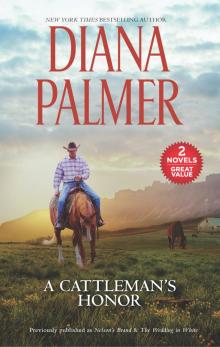 A Cattleman's Honor
A Cattleman's Honor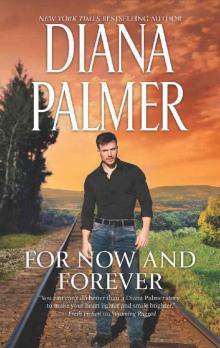 For Now and Forever
For Now and Forever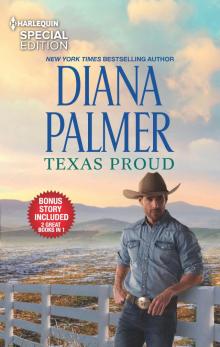 Texas Proud and Circle of Gold
Texas Proud and Circle of Gold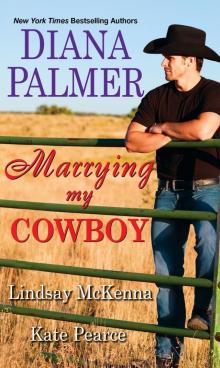 Marrying My Cowboy
Marrying My Cowboy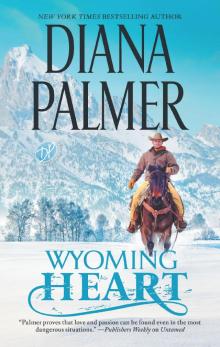 Wyoming Heart
Wyoming Heart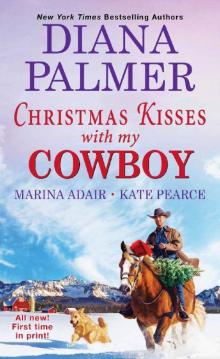 Christmas Kisses with My Cowboy
Christmas Kisses with My Cowboy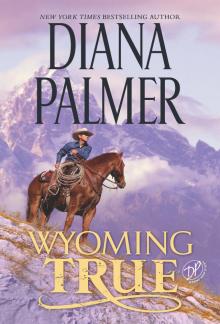 Wyoming True
Wyoming True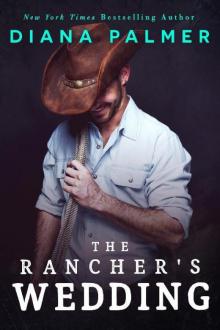 The Rancher's Wedding
The Rancher's Wedding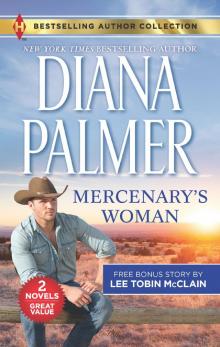 Mercenary's Woman ; Outlawed!
Mercenary's Woman ; Outlawed!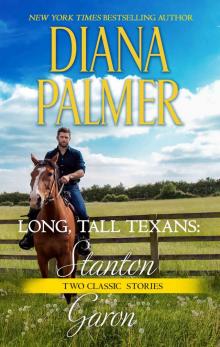 Long, Tall Texans: Stanton ; Long, Tall Texans: Garon
Long, Tall Texans: Stanton ; Long, Tall Texans: Garon Lawless
Lawless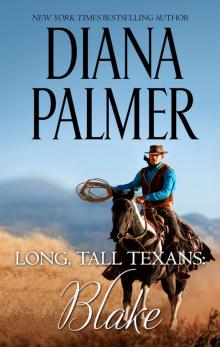 Blake
Blake Escapade
Escapade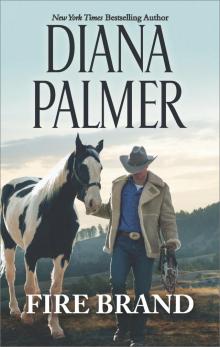 Fire Brand
Fire Brand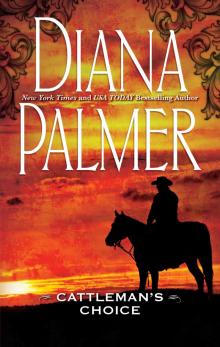 Cattleman's Choice
Cattleman's Choice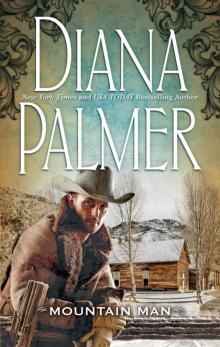 Mountain Man
Mountain Man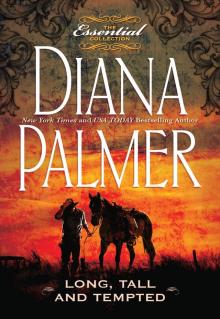 Long, Tall and Tempted
Long, Tall and Tempted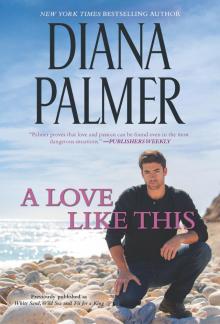 A Love Like This
A Love Like This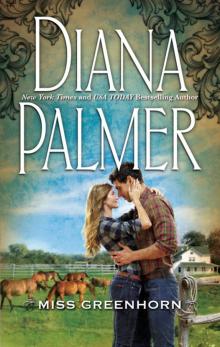 Miss Greenhorn
Miss Greenhorn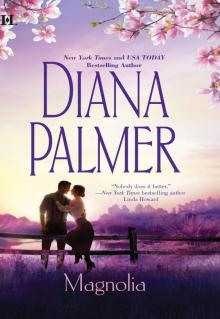 Magnolia
Magnolia Lord of the Desert
Lord of the Desert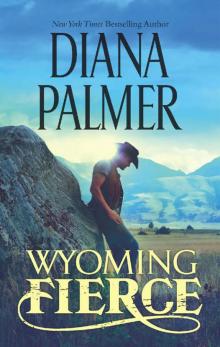 Wyoming Fierce
Wyoming Fierce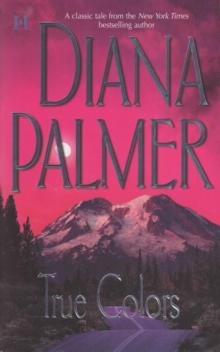 True Colors
True Colors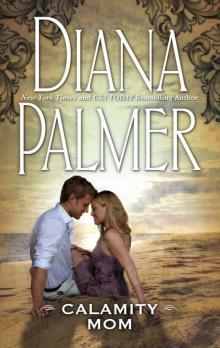 Calamity Mom
Calamity Mom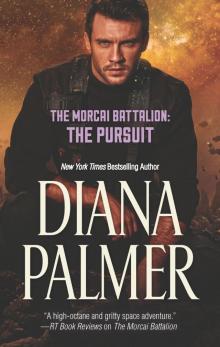 The Pursuit
The Pursuit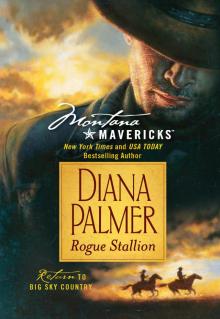 Rogue Stallion
Rogue Stallion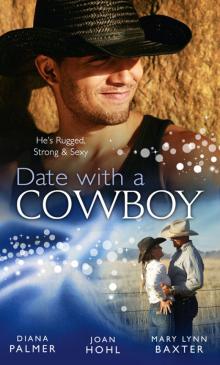 Date with a Cowboy
Date with a Cowboy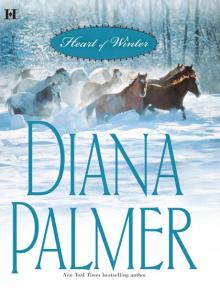 Heart of Winter
Heart of Winter Friends and Lovers
Friends and Lovers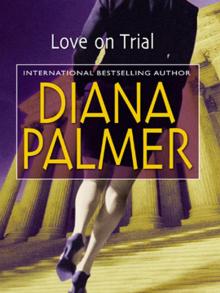 Love on Trial
Love on Trial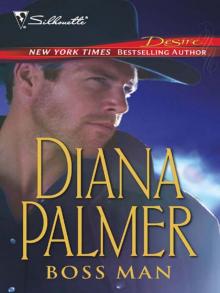 Boss Man
Boss Man Callaghan's Bride
Callaghan's Bride Before Sunrise
Before Sunrise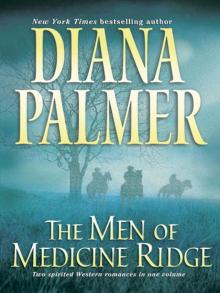 The Men of Medicine Ridge
The Men of Medicine Ridge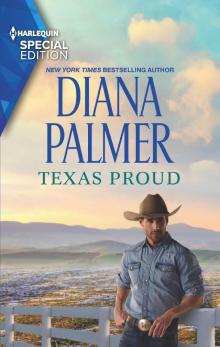 Texas Proud
Texas Proud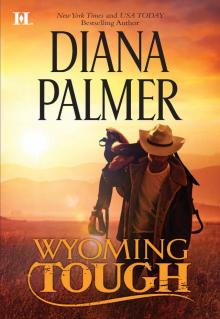 Wyoming Tough
Wyoming Tough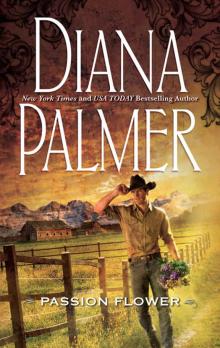 Passion Flower
Passion Flower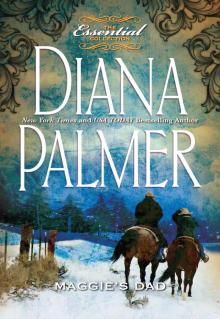 Maggie's Dad
Maggie's Dad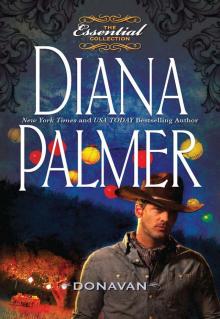 Donavan
Donavan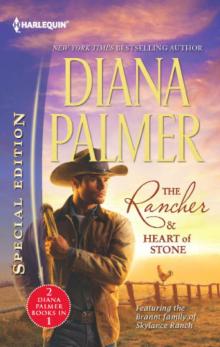 The Rancher & Heart of Stone
The Rancher & Heart of Stone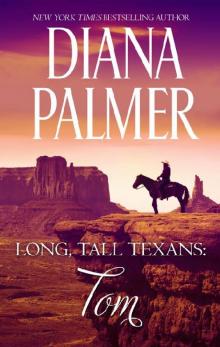 Long, Tall Texans: Tom
Long, Tall Texans: Tom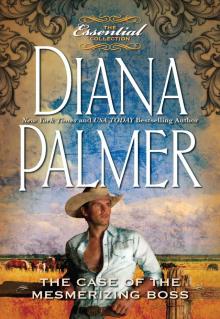 The Case of the Mesmerizing Boss
The Case of the Mesmerizing Boss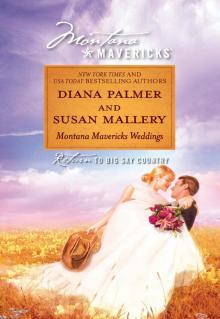 Montana Mavericks Weddings
Montana Mavericks Weddings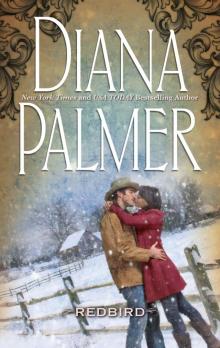 Redbird
Redbird Wyoming Strong
Wyoming Strong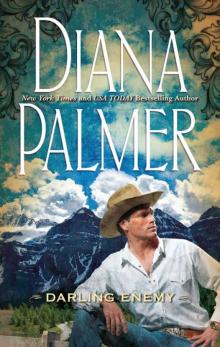 Darling Enemy
Darling Enemy Love by Proxy
Love by Proxy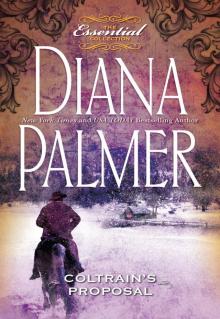 Coltrain's Proposal
Coltrain's Proposal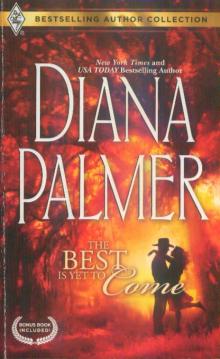 The Best Is Yet to Come & Maternity Bride
The Best Is Yet to Come & Maternity Bride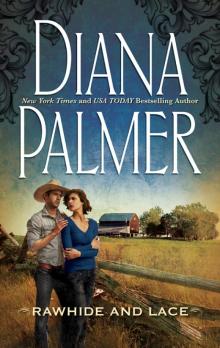 Rawhide and Lace
Rawhide and Lace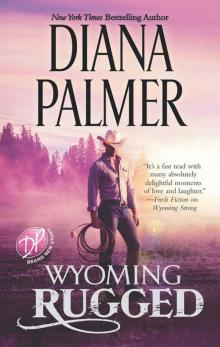 Wyoming Rugged
Wyoming Rugged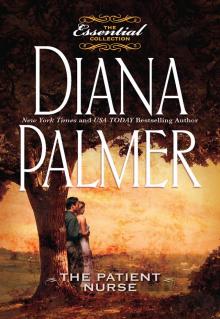 Patient Nurse
Patient Nurse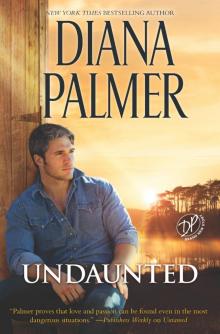 Undaunted
Undaunted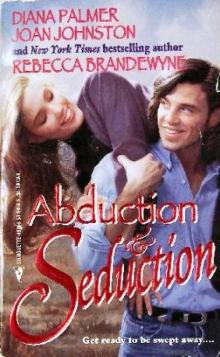 Long Tall Texans Series Book 13 - Redbird
Long Tall Texans Series Book 13 - Redbird Outsider
Outsider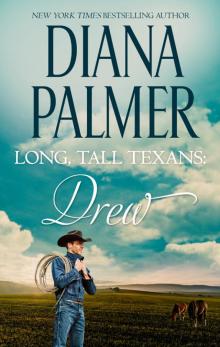 Long, Tall Texans: Drew
Long, Tall Texans: Drew Long, Tall Texans--Christopher
Long, Tall Texans--Christopher Merciless
Merciless A Match Made Under the Mistletoe
A Match Made Under the Mistletoe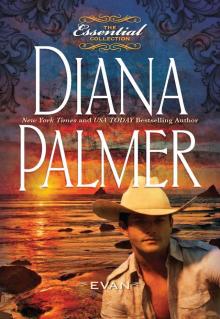 Evan
Evan Hunter
Hunter Now and Forever
Now and Forever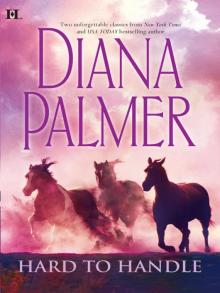 Hard to Handle
Hard to Handle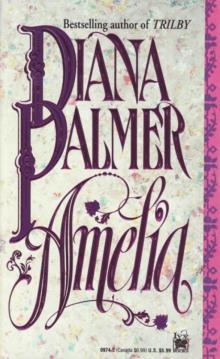 Amelia
Amelia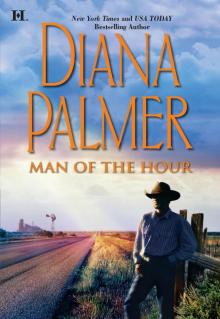 Man of the Hour
Man of the Hour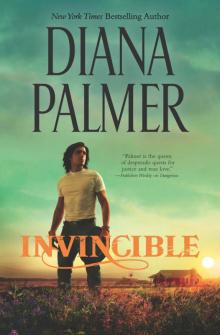 Invincible
Invincible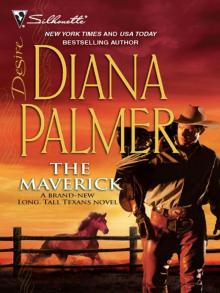 The Maverick
The Maverick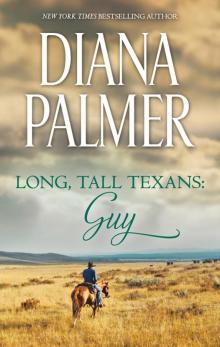 Long, Tall Texans--Guy
Long, Tall Texans--Guy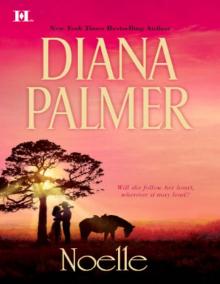 Noelle
Noelle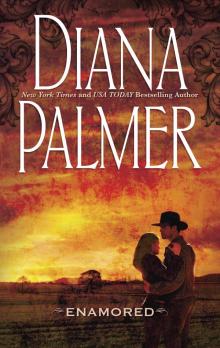 Enamored
Enamored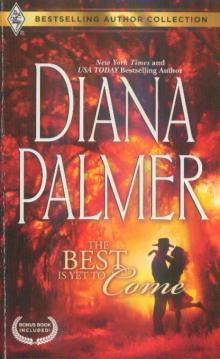 The Best Is Yet to Come
The Best Is Yet to Come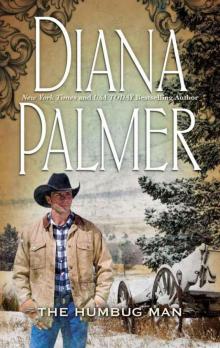 The Humbug Man
The Humbug Man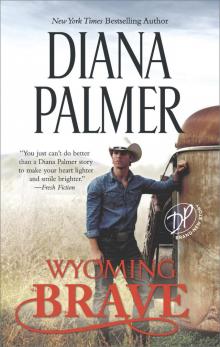 Wyoming Brave
Wyoming Brave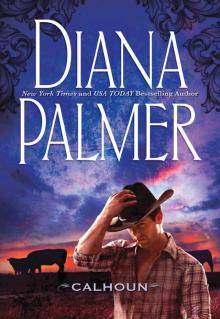 Calhoun
Calhoun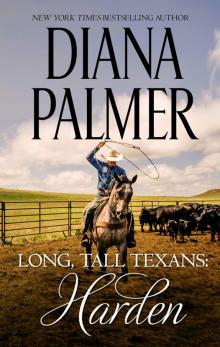 Long, Tall Texans--Harden
Long, Tall Texans--Harden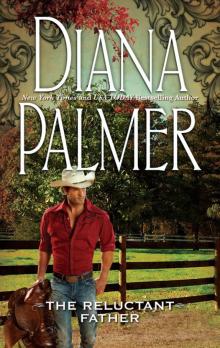 The Reluctant Father
The Reluctant Father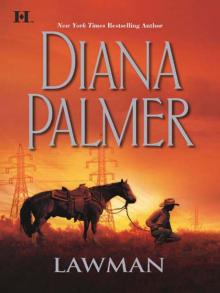 Lawman
Lawman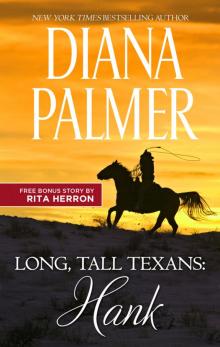 Long, Tall Texans: Hank & Ultimate Cowboy ; Long, Tall Texans: Hank
Long, Tall Texans: Hank & Ultimate Cowboy ; Long, Tall Texans: Hank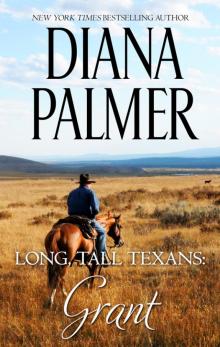 Grant
Grant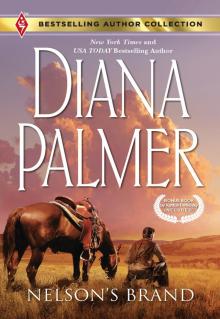 Nelson's Brand
Nelson's Brand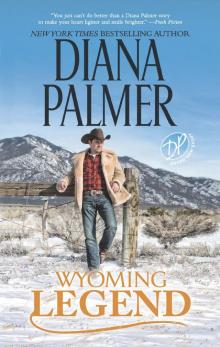 Wyoming Legend
Wyoming Legend Diamond Spur
Diamond Spur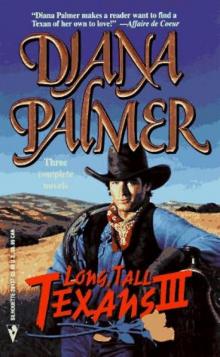 That Burke Man
That Burke Man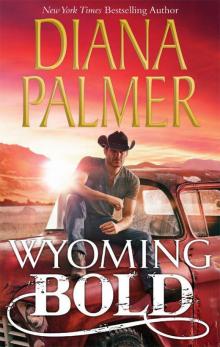 Wyoming Bold (Mills & Boon M&B)
Wyoming Bold (Mills & Boon M&B) Heartless
Heartless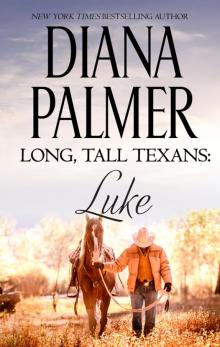 Long, Tall Texans--Luke
Long, Tall Texans--Luke To Have and to Hold
To Have and to Hold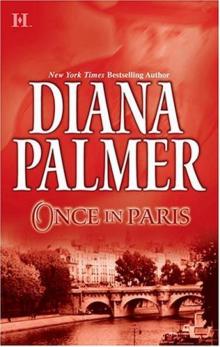 Once in Paris
Once in Paris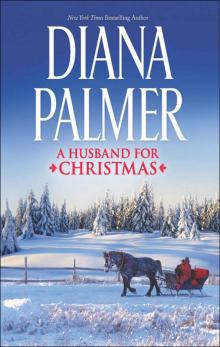 A Husband for Christmas: Snow KissesLionhearted
A Husband for Christmas: Snow KissesLionhearted Night Fever
Night Fever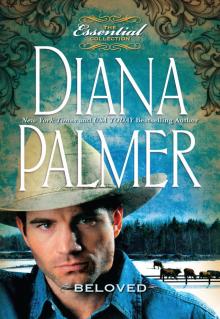 Beloved
Beloved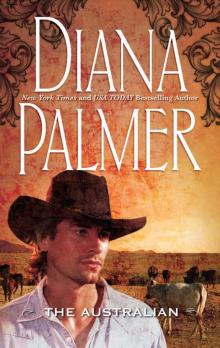 The Australian
The Australian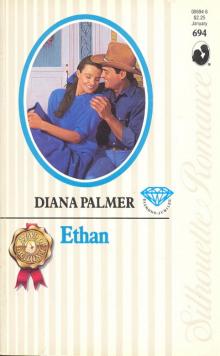 Ethan
Ethan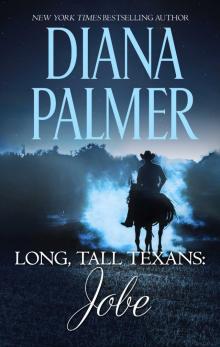 Long, Tall Texans: Jobe
Long, Tall Texans: Jobe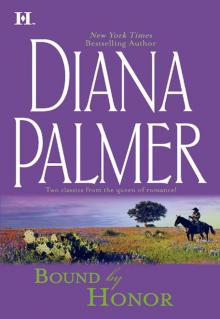 Bound by Honor: Mercenary's WomanThe Winter Soldier
Bound by Honor: Mercenary's WomanThe Winter Soldier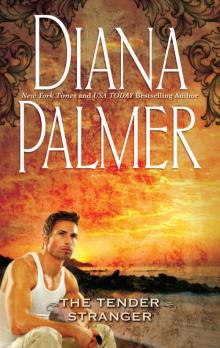 Tender Stranger
Tender Stranger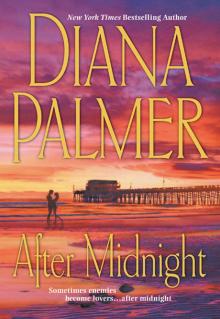 After Midnight
After Midnight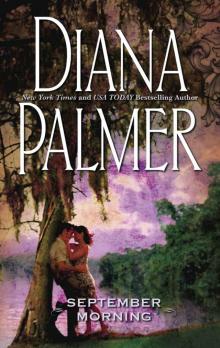 September Morning
September Morning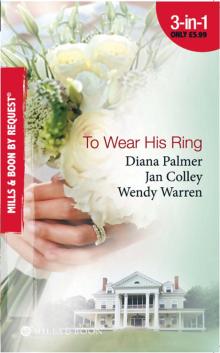 To Wear His Ring
To Wear His Ring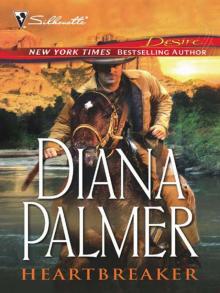 Heartbreaker
Heartbreaker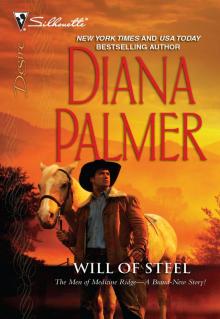 Will of Steel
Will of Steel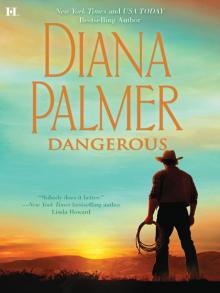 Dangerous
Dangerous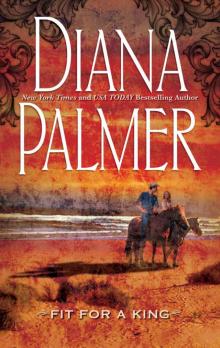 Fit for a King
Fit for a King Diamond in the Rough
Diamond in the Rough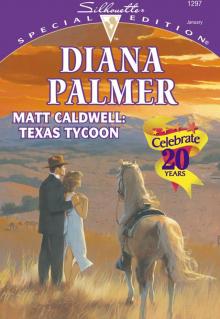 Matt Caldwell: Texas Tycoon
Matt Caldwell: Texas Tycoon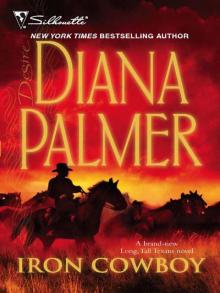 Iron Cowboy
Iron Cowboy Fire And Ice
Fire And Ice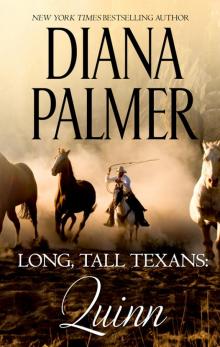 Long, Tall Texans--Quinn--A Single Dad Western Romance
Long, Tall Texans--Quinn--A Single Dad Western Romance Montana Mavericks, Books 1-4
Montana Mavericks, Books 1-4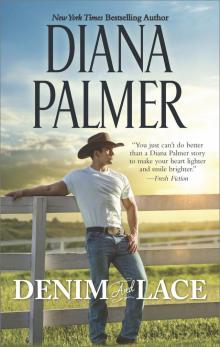 Denim and Lace
Denim and Lace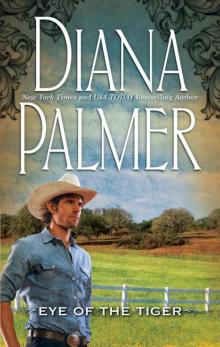 Eye of the Tiger
Eye of the Tiger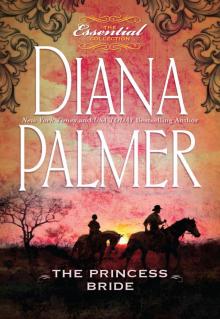 The Princess Bride
The Princess Bride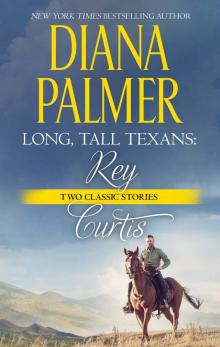 Long, Tall Texans: Rey ; Long, Tall Texans: Curtis ; A Man of Means ; Garden Cop
Long, Tall Texans: Rey ; Long, Tall Texans: Curtis ; A Man of Means ; Garden Cop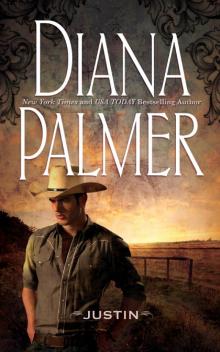 Justin
Justin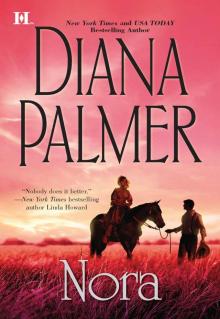 Nora
Nora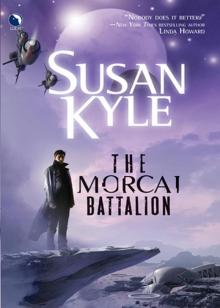 The Morcai Battalion
The Morcai Battalion Heart of Stone
Heart of Stone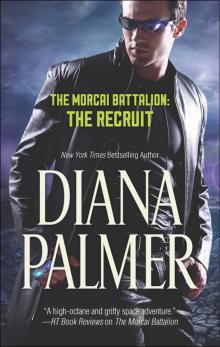 The Morcai Battalion: The Recruit
The Morcai Battalion: The Recruit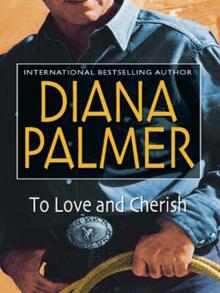 To Love and Cherish
To Love and Cherish Invictus
Invictus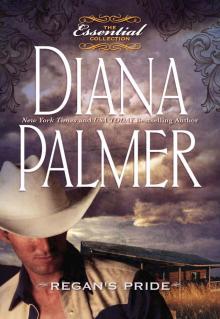 Regan's Pride
Regan's Pride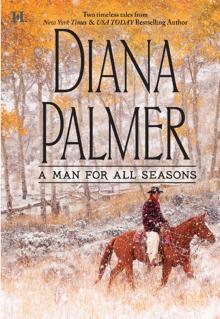 A Man for All Seasons
A Man for All Seasons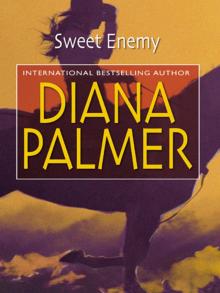 Sweet Enemy
Sweet Enemy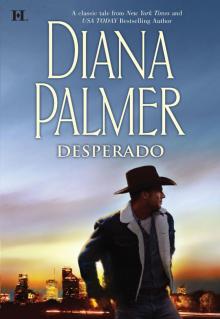 Desperado
Desperado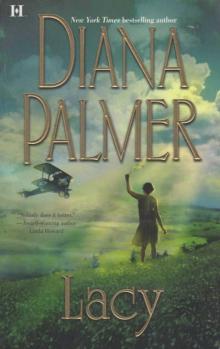 Lacy
Lacy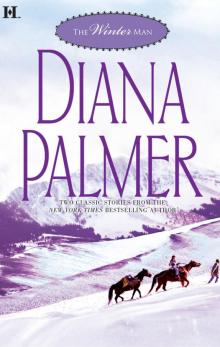 The Winter Man
The Winter Man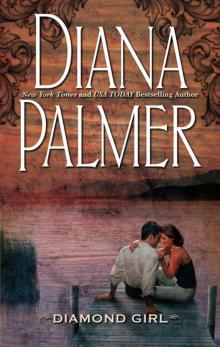 Diamond Girl
Diamond Girl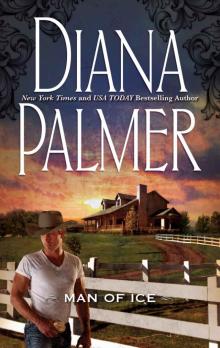 Man of Ice
Man of Ice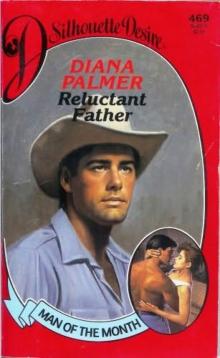 Reluctant Father
Reluctant Father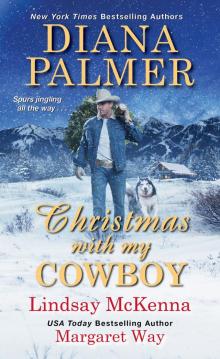 Christmas with My Cowboy
Christmas with My Cowboy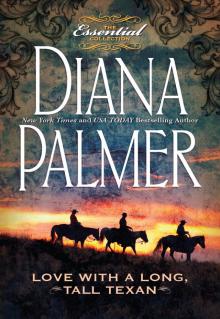 Love with a Long, Tall Texan
Love with a Long, Tall Texan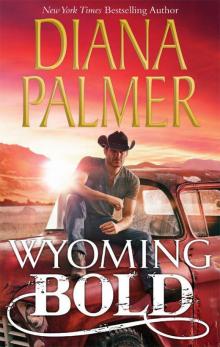 Wyoming Bold wm-3
Wyoming Bold wm-3 King's Ransom
King's Ransom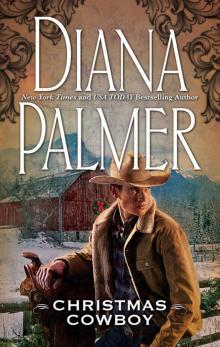 Christmas Cowboy
Christmas Cowboy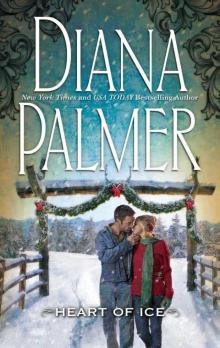 Heart of Ice
Heart of Ice Fearless
Fearless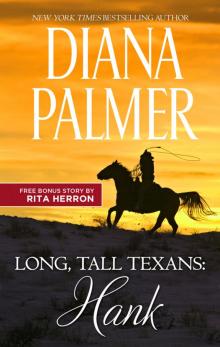 Long, Tall Texans_Hank
Long, Tall Texans_Hank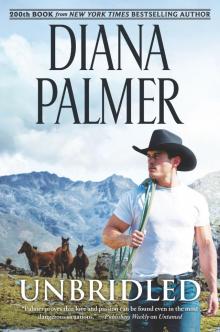 Unbridled
Unbridled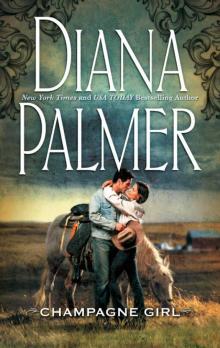 Champagne Girl
Champagne Girl The Greatest Gift
The Greatest Gift Storm Over the Lake
Storm Over the Lake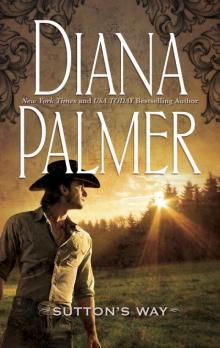 Sutton's Way
Sutton's Way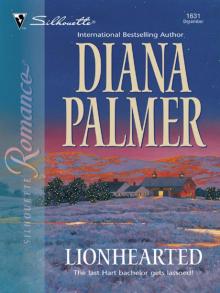 Lionhearted
Lionhearted Renegade
Renegade Betrayed by Love
Betrayed by Love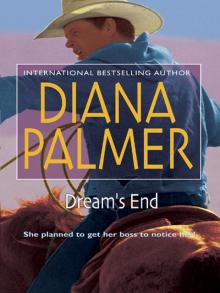 Dream's End
Dream's End All That Glitters
All That Glitters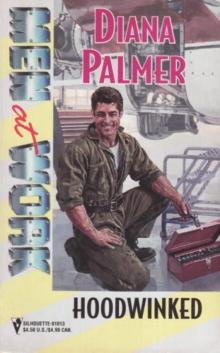 Hoodwinked
Hoodwinked Soldier of Fortune
Soldier of Fortune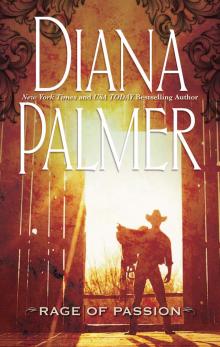 Rage of Passion
Rage of Passion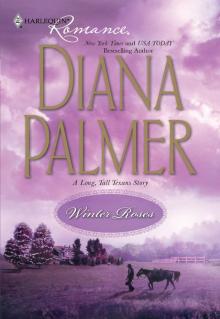 Winter Roses
Winter Roses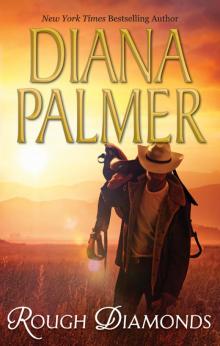 Rough Diamonds: Wyoming ToughDiamond in the Rough
Rough Diamonds: Wyoming ToughDiamond in the Rough Protector
Protector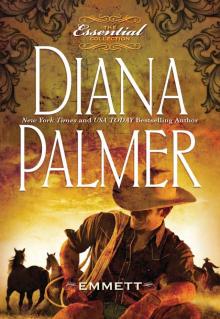 Emmett
Emmett True Blue
True Blue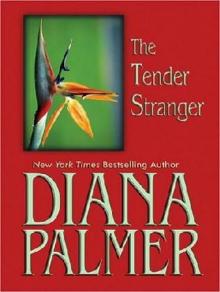 The Tender Stranger
The Tender Stranger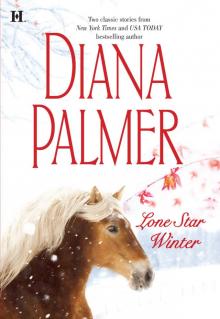 Lone Star Winter
Lone Star Winter Man in Control
Man in Control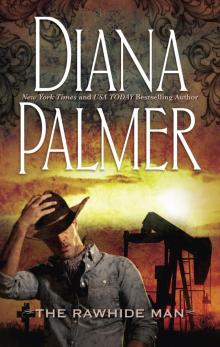 The Rawhide Man
The Rawhide Man Untamed
Untamed Midnight Rider
Midnight Rider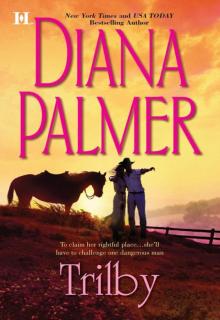 Trilby
Trilby A Long Tall Texan Summer
A Long Tall Texan Summer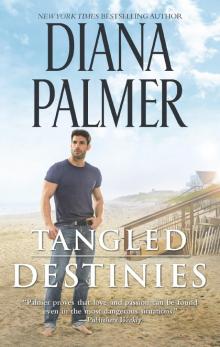 Tangled Destinies
Tangled Destinies LovePlay
LovePlay Blind Promises
Blind Promises Carrera's Bride
Carrera's Bride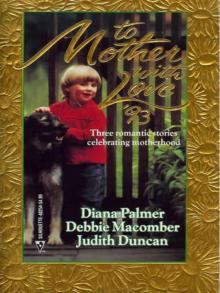 Calamity Mum
Calamity Mum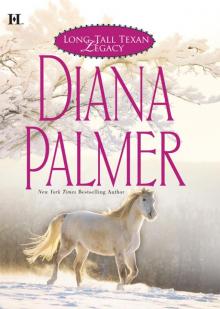 Long, Tall Texan Legacy
Long, Tall Texan Legacy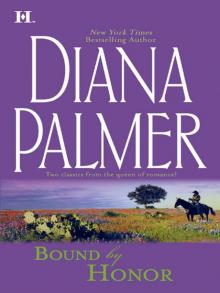 Bound by Honor
Bound by Honor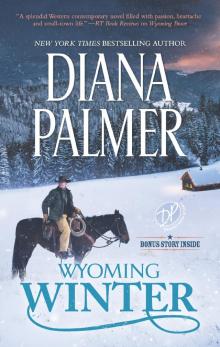 Wyoming Winter--A Small-Town Christmas Romance
Wyoming Winter--A Small-Town Christmas Romance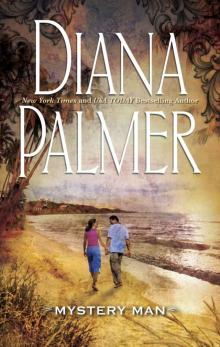 Mystery Man
Mystery Man Roomful of Roses
Roomful of Roses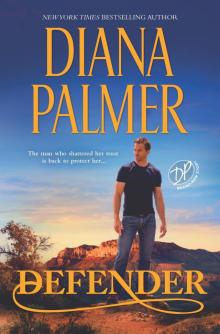 Defender
Defender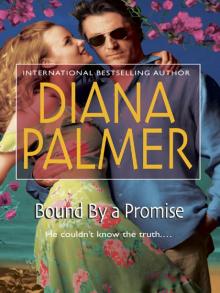 Bound by a Promise
Bound by a Promise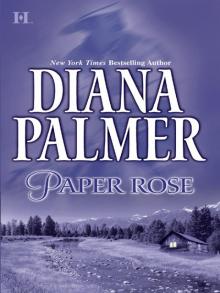 Paper Rose
Paper Rose If Winter Comes
If Winter Comes Circle of Gold
Circle of Gold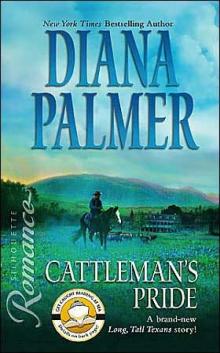 Cattleman's Pride
Cattleman's Pride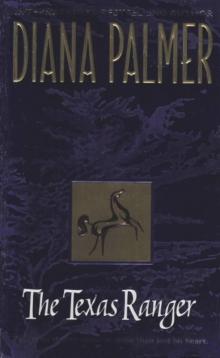 The Texas Ranger
The Texas Ranger Lady Love
Lady Love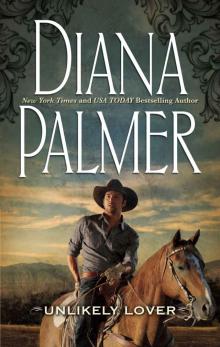 Unlikely Lover
Unlikely Lover A Man of Means
A Man of Means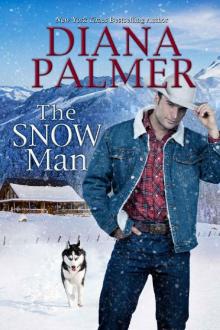 The Snow Man
The Snow Man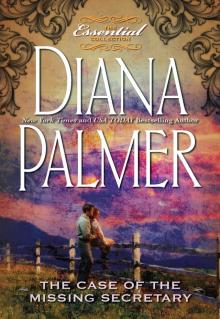 The Case of the Missing Secretary
The Case of the Missing Secretary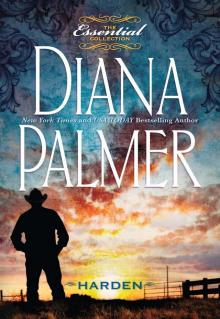 Harden
Harden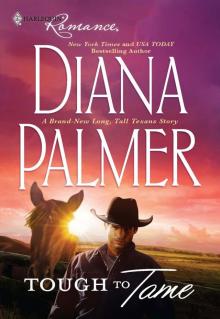 Tough to Tame
Tough to Tame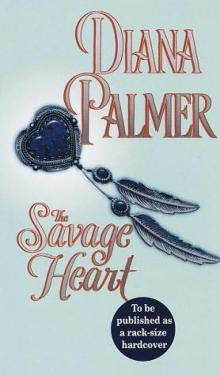 The Savage Heart
The Savage Heart